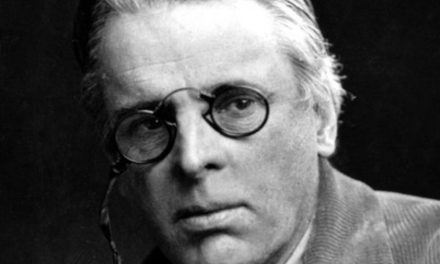VOLUME VIII – CHAPTER 10
SENSITIVITY TO TRADITIONAL CULTURE

Folk arts are part of the cultural revolution-they do not look for survival for they have been existing for ages and communicating effectively.
The folk songs, ballads, music, theatre puppetry are the ingredients of our heritage with which the masses identify themselves. These forms have been existing and surviving through ages.
Prof. Baidyanath Saraswath, Senior Research Fellow at the Indira Gandhi National Centre for Arts at New Delhi says: – they are a recognised synthesis of the substance and style of our existence. We should try to let them undergo their own cultural evolution.
The strength of the traditional forms lies in their ability to communicate social customs and rituals with clarity and simplicity. Each form can relate to a particular community in its own dialect or in a manner perceived by the community as its cultural identity.
Every child in Karnataka knows about the Mahabharata because of the “Yaksha Gana” –the theatrical form of storytelling.
Similarly, if it is ‘Jatara’ of West Bengal, it is Tamasha in Maharashtra, Raslila in U.P. And Bhanpat in Kashmir, The author had been very happy to find during his inspection a music teacher in Kendriya Vidyalaya, Malleswaram, Bangalore teaching Yaksha Gana, KV Fort William, teaching Jatara, KV Kanpur teaching Raslila, KV Srinagar teaching Bhanpat, KV Gandhinagar teaching Dandya, KV Zawar Mines teaching Rajasthani folk dance and KV Madurai teaching Kummi, KV Pattom, Trivandrum, teaching Onakkali and KV Saqmbalpur teaching Sambalpuri Dance, KV Manipur teaching Manipuri dance, KV Kohima teaching Bamboo Dance, and KV Raniket teaching Gharwali Dance.
A recent study in Tamilnadu revealed that the popular advertisement of Onida TV and Mala D contraceptive boomeranged in the villages mainly because in the former the breaking of a glass carries superstitious connotations and in the latter the ad was feared because ‘malad’ sounds like ‘maladi’ means a barren woman in Tamil.
Compared to those observations a folk theatre on leprosy by local artists was very much liked because it projected an atmosphere which created a reality and not alien.
It goes without saying that when a teacher uses those forms of art he should be sensitised about the traditional forms. If we have to play a positive role we must be aware of the desires, aspirations, cultural heritage and attitudes of the people. Teachers can teach these to the students and make them educated with the rural folk regarding modern concepts using those art forms. This will help the schools discharge nicely their ‘PSR’ Pedagogical Social Responsibility. They should involve the people also in their presentations.
According to the analysis of Ms. Anjali Capilla, Senior Lecturer in the Community Resource Management and Extension Department of the Lady Irwin College New Delhi (did her doctorate on the folk songs of Garhwal Region)
”The age-old traditions and folk forms of our rural community have very often been used for entertaining the urban elite or sold across the globe as an ethnic commodity. If the basic content, style, and substance is not destroyed and any change is done by the rural people themselves, then we will have a contemporary form with the original structure.”
In the conventional model of communication where we decide what to say, when to say, how to say, where to say, why to say and to whom to say -the people are merely the passive receivers of information, whereas in a participatory model, creating and sharing information go on simultaneously, therefore spreading a message is more effective and expeditious.
When the author was dy. Director Training (Community Development) South Zone, he had encouraged the BDO and SEO trainees to make use of the local art forms (involving the local people actively) to spread the message of family planning and welfare, improved methods of cultivation, health and hygiene, women education and involvement of the society in the improvement of the local school.
Similarly, as a Principal of Kendriya Vidyalayas, the author had encouraged the students to reform the youth in the neighbouring villages, promote national integration, preservation and protection of our culture and heritage using the local traditional art forms.
~~~~~
VOLUME VIII – CHAPTER 11
MANAGING THE ANIMAL TRAITS

We can understand the changes that occur in most individuals as they enter and move through the world of work by comparing their behaviour with those of well-known animals. Of course there is a veritable zoological metamorphosis. As in the case of fish, the frog and the butterfly – in the same way the people differ in the world of work.
As a rule every new entrant enters an institution as an innocent lamb, but willing to work like a horse. When he smells something fishy in the air, he becomes a cat, wary as he treads every step ahead, careful not to give himself away, looking for any piece of information that he can pounce upon and keep it exclusively for himself, for possible use later.
From this point the rat race begins. However the kinds of changes an employee undergoes differ from person to person, depending upon the individual’s temperament and culture of the institution. Sri Raghava Poduval and Sri Raghunathan joined KVS as Primary Teachers and later on became Principals. Two persons joined KVS at the same time as Post Graduate Teachers. One retired as a PG Teacher and the other one as Dy Commissioner.
Some employees become crows – as the idiom goes in Tamil– and thus ingratiate their way up. In Revenue Dept language it is said a person goes up according to his ability to fulfill “supplies and services”. However, unlike the real crow, they are jealous and self-centered. They never allow their colleagues to come anywhere near the boss to crow their way up. Some of them quickly manage to gain varied hues of experience in the institution. And flutter away colour fully like a parrot at the earliest opportunity.
Others whose temperament inhibits them from placating their way up get stuck. Either they become sulky and sluggish like a Buffalo or keep barking like a Dog. – at the office boy, at the attender, at their colleagues or once in a while at the Boss himself when they can get away with it. A staff member in a KV used to pick up a quarrel with everyone in the school without a day missing and since the Principal of was ineffective, he used to shout at him also.
Some others become Asses bearing a heavy burden of work with pitiable serenity. They don’t worry about their unrewarded labour or even out of turn promotion for their juniors.
Some others become Bandicoots – that gnaw and garner a sizeable fortune from the institution illegally. There was a clerk – an intelligent one who took advantage of the Principal’s innocence and ignorance of accounts and amassed a fortune.
A few others become as Swami Vivekananda said, ‘cunning foxes’.
A rare one becomes a lion.
Keep an eye on every staff. Locate the category he belongs to and deal with him accordingly.
VOLUME VIII – CHAPTER 12
NON – VERBAL COMMUNICATIONS

“We talk with our vocal cords. But we communicate with our facial expressions, our tone, voice and with our whole body.” says Psychologist Paul Ekman.
“Your status manifests itself subtly in a related posture and the way of interaction”.Says Albert Metrabeam, Professor of Human Behaviour.
Those lower down the scale display more rigidity. The classic example is the soldier standing at attention in the presence of a higher officer.
The leaders in a group are usually the ones who lean back in their chairs, fold their arms behind their heads and put their feet up on the desks. To make a point they lean forward. Slouching in the chair, they touch themselves more massaging the bridge of their nose, rubbing a finger over the lips, scratching a leg. “these are self-manipulating behaviour” says Paul Ekman.
Individuals who feel vulnerable clasp their hands in front of them or fold their arms as if trying to make themselves less conspicuous.
The powerful have also their prerogatives, that mark their position. One of them is touching others. The higher ups also take greater control of their conversation. One of the most common is the ‘qualifier’ smile which the higher ups often use in rejecting an idea or criticising a staff.
How we can tell if a smile is genuine? Look at the upper half of a person’s face—genuine or ‘felt’. Smiles involve the muscles that make the eyes crumble with pleasure. Posture that is too stiff can indicate rigidity or thought.
The beaming smile is a genuine smile. While behind the smile of a Director of Public Instruction was concealed. His anger at the absence of an officer in the crowd that had come to receive him was visible.
The handshake most likely to convey confidence is firm and dry with a strong but not excessive pressure applied steadily for the time the contact lasts. (observe the handshake of political leaders when they meet).
You should acquire the ability to sustain direct eye contact if you want to be taken seriously. Never wear black goggles when you speak to another person. That shows you want to gauge the other person, while at the same time you don’t want him to observe you. This shows either your own inferiority complex or your unbelieving nature. If you maintain eye contact very intently that your boss feels uncomfortable he will feel that you are challenging his authority even if that is not what you intended.
The way you hold your body can show youngsters where you and they stand. If you fold your arms across your chest or even cross your legs while you talk, it means you are closing the communication. If a father or a nun says “May God bless you”, it means the conversation is over. The author has observed several times Dr. Mrs. Rajammal Devdas, former Chancellor, Sri Avinasalingam University, Coimbatore folding her arms across the chest when she wanted to end the conversation.
Non-verbal messages come from deep inside you. From your own sense of self-esteem people know that you are having a relaxed way of talking and moving. Classic examples of this were Sri Kamaraj and Dr APJ Abdul Kalaam.
Whenever any Principal or a teacher sat in front of the author to discuss something, he used not only to listen intently but also closely watch the way each part of the person’s face moves – the forehead, the eyebrows, the nose, the ears, the cheeks, the smile, the chin and finally the Adam’s apple in the throat. Whenever the last one went up and came down he would understand that the other person came up with an idea in his mind which he wanted to express but on second thought ‘swallowed’ it up.
~~~~~
VOLUME VIII – CHAPTER 13
BUILT TO LAST
There are three kinds of institutions – one that never gets off the ground or at best exists on the margins and when they sink they leave behind no memories and no history to talk about (like some of the self-financing engineering colleges which are purely commercial and as such in a few years admissions came down miserably and so they had to fold up)
The other category is of those which make a promising start, raise expectations and then burn themselves out even before they have come of age. Raising some difficult questions about why they ended up the way they did. (eg. Some of the fly-by-night teacher training institutes)
The third category is those which start in a humble way, slowly build up their stature and then become role models (like the International school at Aurobindo Ashram, Pondicherry)
Will you make your school belong to the third category?
~~~~~
ONE WHO KNOWS (VOLUME VIII – CHAPTER 10 to 13)
(DIMENSIONS OF THE LIFE AND WORK OF A PRINCIPAL)

1108) One who knows as said in the Army Manual, over a period of time people change and as such he knows that the person who worked with him 5 years back will not be the same person. And that both would have changed and so should act accordingly
1109) one who keeps an eye for happy accidents, the unexpected knocks on the door from people who see something in him that he has not been noticed in himself.
1110) One who knows that these situations are not really doors to new opportunities, but act more like mirrors helping him to recognise and rebuild himself in a new way.
1111) One who knows that there is something / someone hidden in each person.
A) an Entrepreneur can be a Chemical Engineer
B) a Chemical Engineer can be a Writer.
C) a Writer can be a Surgeon
D) a Surgeon can be an Entrepreneur and he is patiently waiting and helping each one to discover himself / herself
1112) One who knows that in the workplace, there will always be a set of rising suns determined to dazzle the world with their brilliance and sometimes they may be eclipsed by other forces and removes them from their way.
1113) One who has “perfection strivings” and “Perfection concerns”
1114) One who reinvents himself:
A) learns another language
B) equips himself with a professional degree
C) acquires cross cultural training
D) gains new skills
E) expands his circle
1115) One who does not allow anyone a chance to say that he is not upto speed, makes excellence a habit and leaves little room for anyone to point a finger or pick holes in his work.
1116) One who knows to say good bye to guilt, when some contingencies deserve high priority and can’t be delegated.
1117) One who sets realistic timelines and adheres to them.
1118) One who knows that everything can’t be done by himself and even though “the best supporting hand is at the end of his own arm”. He sometimes may need assistants who can share the load.
1119) One who can identify activities that will restore his sanity and makes time for them so that they will help him recharge, energise and brace himself for the challenges ahead.
1120) One who knows that silence kills the yielding one and he can unshackle himself only through a voice.
1121) One who knows that many problems are because of,
Ignorance of one
Inability of another
And his sensitising voice should have,
The right content to reach the right person
In the most appropriate manner
1122) One who knows that voice is necessary, not for
The dominant to win the battle
But for the submissive not to lose the battle
1123) One who knows that a lot of problems would disappear if both
Talk to each other
and not Talk about each other
1124) One who knows that unspoken thoughts get us nowhere and he should voice his thoughts before he could expect others to understand his position.
1125) One who knows that for an effective voicing, the right content should be spoken
To the right person in the right manner at the right time
1126) One who knows that he should be visible
To the right person at the right time in the right place
1127) One who knows he must strive to get past the gatekeeper and reach the upper part of the trainer
High ABILITY
Low TO BE SEEN
1128) One who has the right content and courage of speaking,
High and low ABILITY TO EXPRESS speak up and motivate others
CLEANLINESS have courage to speak
1129) One who knows to voice in the right manner with the right argument.
ABILITY TO BE HEARD
High Master the skill of articulating his work in a manner
Can never refuse to accept
Low Gathers the right facts and arguments to support his points
Strengthens his arguments raising his voice
Tri triangle BE VOCAL BE HEARD
BE SEEN NEED TO WORK
1130) one who knows Savithri followed all these three steps since she would have lost her husband if she had remained silent
Tr i: she convinced her husband and went along with him to be at the right place and she made sincere efforts to meet the right person.
Tr ii: she followed Yama and had the courage to speak out
Tr iii: she spoke in the right manner, impressed Yama and won boons and her husband’s life back.
1131) One who knows to be transparent about his costs of running the school, tells the parents and asks them to help with an increase in the tuition fees.
1132) One who doesn’t give the West the authority to determine the limits of our students—what they should read
1133) One who knows that agility is the ability to respond quickly to change, to be resilient and overcome unforeseen challenges,
1134) One who knows that his seemingly small decisions may have huge impact on his staff and so sees if his decision will cause intense pain on the least powerful and privileged.
1135) One who knows that when he joins an organisation he is new – like Alice in Wonderland. “but, alas, either the locks were too small or the key was too large, but at any rate, it would not open any of them.
He knows he will have large part of allocated and unallocated resources, billed or unbilled resources, skilled or unskilled resources. In spite of this, he knows he has to get things done and that he will never have a perfect fit.
1136) …”there may be a duck or dodo, a crow or an eaglet and several other curious creatures.” ….. He knows that diversity is all about exploiting the differences so that unique strengths are leveraged, leading to the growth of the institution and the individual.
1137) …”who are you?” asked the Caterpillar. Alice replied, rather shyly. “I hardly know sir, just at present—at least! I know who I was when I got up this morning, but I think I must have changed several times since then…..I am afraid I can’t put it more clearly”. Alice replied more politely, “for I can’t understand it myself to begin with and being of so many different sizes in a day is very confusing”.
1139) One who knows that his day will be full of twists and turns and he has to live up to them.
1140) One, who, when he has several identity crises in a single day, knows to prioritise so that he can’t go wrong.
1141) One who knows that there will always be battles to fight, forces to be put out, ruffled feathers to be smoothened. But he picks up his battles wisely and ‘learns’ to say ‘no’ to all things not under priority and understands that priorities can change constantly.
1142) One who knows that in communication the same idea can be presented in a positive like –
A) negative—Can you make yourself more clear?
A) positive—I am unable to catch you.
B) neg: I don’t agree with you.
B) pos: Can you make your position more flexible?
C) neg: Smoking not allowed here.
C) pos: Thank you for not smoking.
D) neg: Go out
D) pos: Will you kindly leave me alone?
E) neg: I have files to attend.
E) pos: Do you have anything more to tell me?
F) neg: I have not done it.
F) pos: I am yet to finish it.
G) neg: I am not used to tell lies.
G) pos: But my professional ethics prevents me from telling the truth.
H) neg: I can’t grant you leave.
H) pos: Can you make alternate arrangements for the works to be completed in your absence?
I) neg: The way you taught was not correct.
I) pos: Could you consider this approach as another useful alternative?
J) neg: I am unhappy about what you have done.
J) pos: I expect better level of work from you, since I have high expectations from you.
K) neg: The accounts are not correct.
K) pos: It will be nice if you have a relook of the accounts.
L) neg: One Lakh of Rupees or one Tirupathi Laddu – of these two which is of greater value?
L) pos: Which one would you like to take, I lakh rupees or one Tirupathi Laddu?
1142) One who knows that to be successful, he needs a strong support system
At the time he needs it
And when he can’t go about searching for it.
1143) One who knows that he has to find high calibre people, build, nurture over time, keeping them in the loop.
1144) One who knows that he has to plant a tree well before he needs its fruits and to architect his future, has to build the right network / support system around him.
1145) One, who may not know exactly what help he may need tomorrow, but, knows which direction he is trying to go in and so gets an idea of the kind of people he may need tomorrow to help him, guide him, push him and challenge him and so starts associating today with people who can contribute to his tomorrow.
1146) One who knows that the support system needs reasons to support.
A) Willingness to give before expecting. A tree does not bear fruit just because a seed has been planted—it needs to be watered and taken care of—so also relations work on a give and take – give comes first.
B) our responsibility to earn the trust of people,
1147) One who knows that the leadership is about finding solutions and not evading them.
1148) One who knows the integral aspects of a team are=
A) Competitiveness
B) Combination – Being Together
C) Work
D) A Formal Structure
E) A Purpose.
~~~~~
DIAMOND and gold are only material things; man has made them precious. But, man is really the most valuable being on earth. He has recognised his uniqueness and importance for, he declares, “Janthoonaam narajanmam durlabham”. In spite of the awareness, man desecrates himself by bartering himself for trivial pleasures. – Bhagawan Sri Sathya Sai Baba






